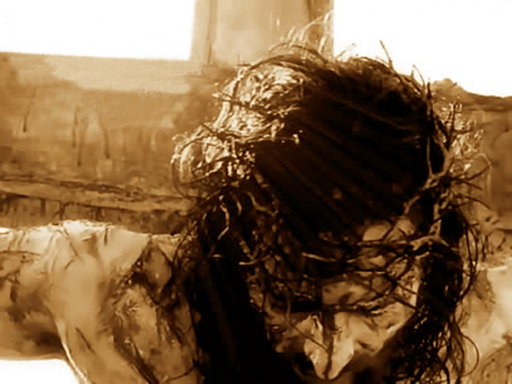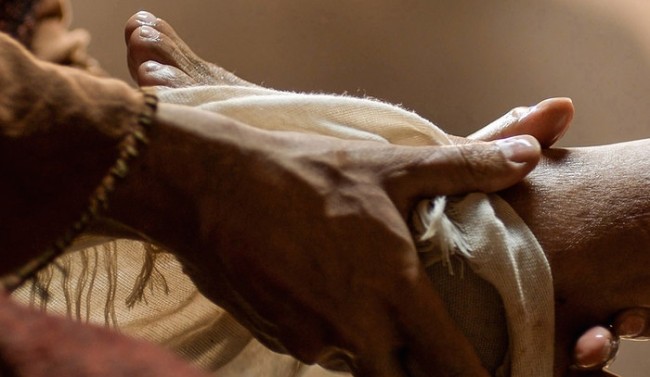So today is Halloween. It’s a great day to trick others with unexpected grace and treat them with surprising love.
To track the etymology of the word is to understand it’s meaning: “Halloween” comes from a contraction of the German/Dutch, “All Hallowed Saints Eve” to “All Hallows’ (Saints’) Evening” – “All Hallows’ Eve” – Hallowe’en. It’s a yearly celebration observed in a number of countries on October 31, the eve of the Western Christian (Catholic) feast of All Hallows’ Day. The day is dedicated to remembering the dead, including saints (hallows), martyrs, and all faithful departed believers.
More importantly for protestant believers, today marks the day commemorating Martin Luther’s posting of his ninety-five theses, grievances against the Catholic Church at the entrance to the Castle Church in the town of Wittenberg, Germany. Luther, an Augustinian monk, doctor of theology, and resident of Wittenberg, posted his objections on October 31st in AD 1517. He did so knowing that the next day, All Saints Day, many would come to the church and be able to read it. Luther’s theses sparked a rediscovery of the core beliefs of the Christian faith and primal teachings of Jesus. His protest (thus the term, “protestant”) or confrontation within the Church would eventually lead to the movement known as the Protestant Reformation.
The historical, theological trends that brought about the Reformation began centuries before its actual occurrence. The root cause of the Reformation was a departure from several foundational teachings of Jesus, including the believer’s relationship with God and relationship with the Church. At the heart of the protest, however, was the issue of salvation and namely a departure from grace.
Through the years the Church had gone the way of the default mode of the human heart: the way of the law. The formation of a self-salvation project is always the default mode of the human heart. The Church had veered so far off the track of grace that a radical course correction was necessary. The reaction of the Church against Luther and a constant refusal to discuss his theses prompted an internal schism that eventually became the Reformation movement. By 1530, the lines were clearly drawn and an official statement of faith, known as the Augsburg Confession, began the first Protestant Church.
ALL OF THIS BEGS THE CRITICAL QUESTION: How have we veered off track and moved away from the teachings of Jesus in our day? Without constant self-correction (Spirit-led correction) we will always run to the way of the law. Law puts us in control. It allows us to check the box, to add to, and measure our contribution. And as a result, the law always leads to guilt and shame or pride and a judgmental spirit. The law has no power within it to transform us. It only condemns us and (hopefully) points us to the better way of God’s free grace in Christ. If we do not constantly re-calibrate everything back to the Person and Mission of Jesus, we will always go back to the law. If Luther were alive today, what would he be nailing on the doors of our churches? Better yet, what if Jesus were to come to our churches? What would He see? What would He say?
I believe we’ve veered off the course of the Church Jesus intended us to be. The need for a radical reformation in our day stems from two primary problems or re-discoveries:
- We need to rediscover of the Gospel of God’s rescuing grace.
- We need to rediscover the Mission of Jesus- to make disciple-makers.
The first challenge today is not that we don’t believe that God saves us by His grace. Our problem is that we don’t believe that He saves us by grace ALONE. We come to Christ by grace through faith and then we think it’s time for us to get busy, adding our good works to the mix. We are saved by grace and then we strap on the law. As Paul noted, we want Moses to finish what Christ has begun. We move from Jesus as Savior to Jesus as Example. Jesus as Savior is liberating news. Jesus as Example is crushing news. We’ve forgotten that, just as central to our salvation as Christ’s sacrificial death on the cross for our sin, is the fact that He lived the perfect life for us- so that we wouldn’t have to. I am free from condemnation because Christ fulfilled all of the crushing demands of the Law. There is nothing new inside of me, only the law. The Gospel (as News) comes from completely outside of me. I bring nothing to the table.
The second challenge of our day is a determination to join Christ on His core mission: to make disciples. We need to move from programs to disciple-making. Church leaders need to ruthlessly assess all programs, events, and gatherings in light of the singular mission of Jesus- to make disciples. The great sin of the Church in our day is not unlike that of Luther’s day: lots of church activities that form for us our own self-salvation project. We have so many options we can put together our own track, one that best suits our needs. Instead, we must bring all of our energies to making disciples. We must realize that being a disciple if not learning a body of knowledge but instead, mastering a skill set. And that skill set (in the context of loving, accountable relationships) is learning how to hear from the Spirit of God through His Word, obeying His Word, and telling someone else about it. Only through obedience will we see the power of God unleashed in our lives and only then will we see the reformation that will save the Western Church in our day. Lord, may it happen!
Let the reformation begin today with simple, unexpected acts of grace and surprising love without condition.
Happy Halloween.




